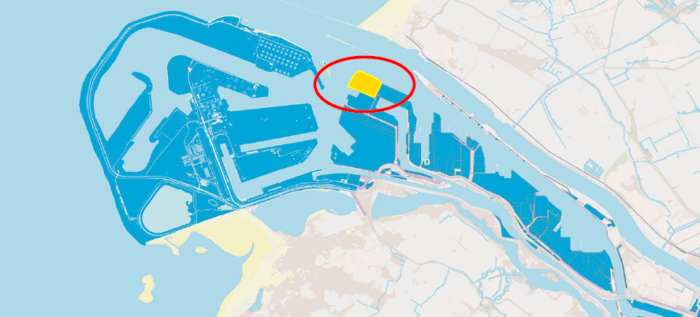The Port of Rotterdam is attempting to expand its position as Western Europe’s biggest transit port for agricultural, horticultural and fishery sector products. Part of this strategy is the creation of the Rotterdam Food Hub at Calandkanaal, at the entrance to Maasvlakte.
This hub is a 60-hectare industrial site, offering facilities for ‘agrofood’ sector companies. Land allocation discussions are also taking place with interested parties for more than half of the 60-hectare industrial site near Maasvlakte.
After the US, the Netherlands is the world’s largest agriculture exporter, while nearly €92 billion was traded in 2017.
[smlsubform prepend=”GET THE SAFETY4SEA IN YOUR INBOX!” showname=false emailtxt=”” emailholder=”Enter your email address” showsubmit=true submittxt=”Submit” jsthanks=false thankyou=”Thank you for subscribing to our mailing list”]
Commenting on this strategy, Emile Hoogsteden, Director of Containers, Breakbulk & Logistics at the Port of Rotterdam Authority, said that the Rotterdam Food hub will have access to multiple berths for sea-going vessels especially equipped for refrigerated cargo. Namely, berths for inland vessels will be available and warehouses will be located near to the quays to enable refrigerated and frozen cargo to be stored, processed or transported quickly.
The Rotterdam Food Hub also aims to offer several shared facilities that can be used on the site. Specifically, quays and services for transport, storage, access control and customs can be shared efficiently.
Emile Hoogsteden noted:
The Rotterdam Food Hub forms a fantastic and extremely welcome addition to the agrofood hotspots that already exist in the Port of Rotterdam, such as Cool Port and the large cold storage warehouses including at Maasvlakte and Eemhaven. Its location close to Greenports such as Barendrecht, Ridderkerk and Westland is, of course, also ideal
Out of the 60 hectares, about 45 hectares are available for issue to companies, and land allocation discussions are already taking place with candidates for some 35 hectares. Preparatory works such as soil surveys already occurred this spring and the construction of a temporary road and utilities for the building work will start from June.
The development of the site, which will be known as ‘Kop van de Beer’ (Head of the Bear), will start in July with construction work for the site’s first client. The first companies will be operating there by the end of 2020.
Finally, Rotterdam is a large agrofood import and export port in Western Europe. Regarding imports, the top 3 are citrus fruits, bananas and grapes. A lot of fruit juices also find their way to the consumer via Rotterdam.
Vegetables, onions and potatoes are the biggest exports, followed by pork, poultry products, cheese, outdoor plants and herring. The country to which most agrofoods are exported from Rotterdam is China, while most imported products come from South Africa, Brazil and Costa Rica.
































































